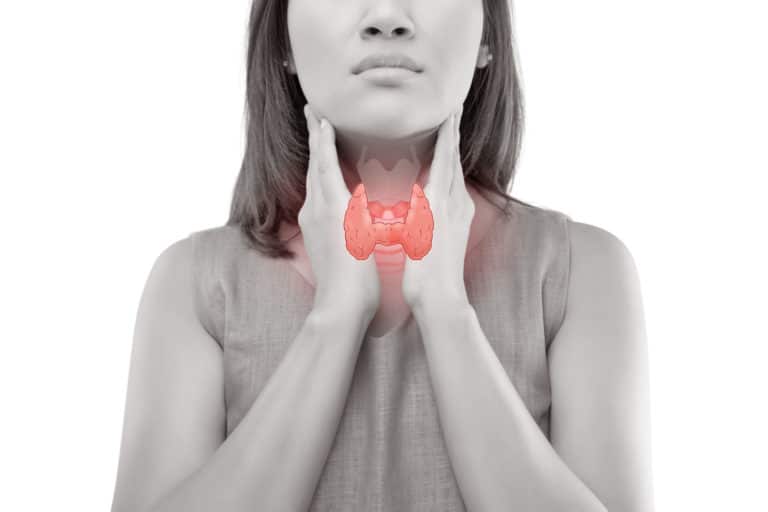Thyroid nodules are a very common finding. Approximately 5 to 10 percent of the population will have thyroid nodules. Luckily, benign nodules are the rule, and malignant thyroid nodules are very rare. In fact, 5 percent or less of thyroid nodules are found to be malignant.
Who Is at Risk of Developing Thyroid Nodules?

Some factors that are concerning for malignancy that your doctor will discuss with you are the very young or the very old, male population, problems with swallowing or hoarseness, a history of radiation treatment to the neck, any prior history of thyroid carcinoma, a very firm, hard, non-movable nodule, or swollen cervical lymph nodes.
Factors suggesting a benign nodule include any family history of autoimmune diseases, a family history of benign thyroid disease, any presence of thyroid hormone dysfunction, a painful, tender nodule, or a soft, smooth, movable nodule.
How Are Thyroid Nodules Diagnosed?
Once your doctor has taken the history and physical exam, he may wish to order further testings. It is very common for the doctor to order a thyroid-stimulating hormone and possibly other thyroid hormones. In order to further diagnose whether your thyroid nodule is a benign nodule or malignancy nodule, your doctor may order imaging studies. Those may include a thyroid nuclear medicine scan, which is not used as commonly as in the past, or an ultrasound, which is very good for determining the size of your thyroid and the number of nodules. Many times, along with the ultrasound, the doctor will order a fine-needle aspiration biopsy. This is a test to actually obtain cells from the nodule, which are then examined by the pathologist to determine the risk of a cancer. Once your doctor has all of the information, then he can talk to you about different treatment options. Those options may include surgical treatment, they may include medical treatment, and they may include just close monitoring.
In summary, thyroid nodules are very common and are most often benign. Your doctor will perform a very detailed physical exam, ask you questions concerning your past medical history and family history, will likely want an ultrasound with a needle biopsy, and possibly blood work.
Call Palmetto ENT & Allergy at (803) 256-7076 for more information or to schedule an appointment.
